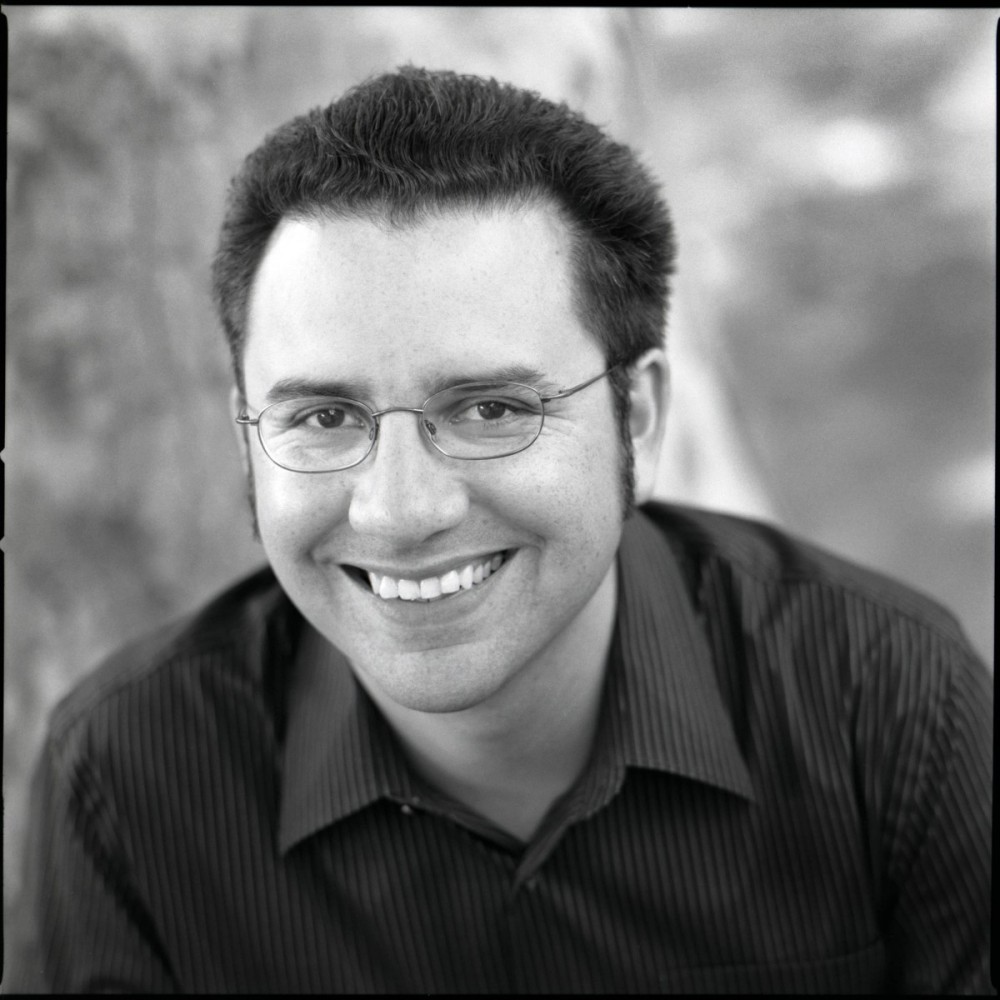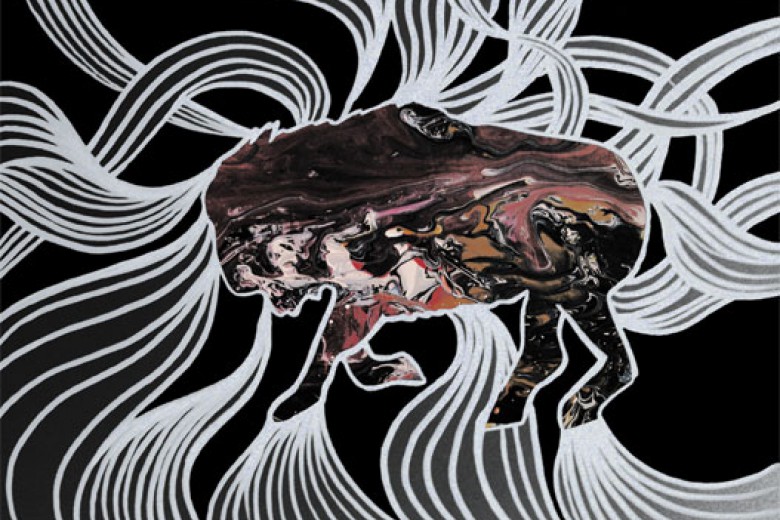
Richard Van Camp is Briarpatch’s creative non-fiction judge in the 6th annual Writing in the Margins contest.
You work across several genres, including short stories, poetry, children’s books, scripts, and graphic novels. How do you decide which form will be the best fit for the story you want to tell?
The story is the boss. Always. Twenty years of writing working with10 different publishers, it always comes back to that first flash, that first whisper, that channeling. I’ll always be a student of the craft and I read all the time. I’m also incredibly nosy. There’s nothing like working on a story, honing it, rewrite rewrite rewrite, and then having it done. Leaving it alone and returning to it and feeling the awe, knowing you’ve honoured it. It’s chosen you. You’ve honoured the spirit of the piece to the best of your ability. Now it’s time to decide: what is it? Where can it best go? That’s actually were the work begins. Then it’s working with your editor to take it even deeper.
What do you consider to be your first accomplishment in writing, or the first time you felt that a life in writing was going to work out for you?
My first book, The Lesser Blessed, came out 20 years ago. We’re celebrating our new edition: the 20th anniversary with two extra short stories and a new intro by moi. I wouldn’t change a word in the novel. It took me five years to write. That’s how craft is born: taking the time, rewrite rewrite rewrite, working with an incredible editor like Barbara Pulling. I always go back to that first moment when I held my novel for the first time. There’s the late Tim Atherton cover. There’s the feathered pages. Look at those French flaps! I have total recall for that moment because I’ve had 19 of those ever since and it’s always such a celebration. Each book is a year to a year and a half of my life. So that moment not only launched a writer, it launched an author and an entrepreneur. You can make a great living as a writer. I’m living proof! :)
How do you work with the oral storytelling tradition in your writing?
I need oral storytelling in my life as a listener because I’m always filtering the pauses, the slang, the rockabilly of pacing, the delivery. When I listen to a master storyteller or someone just sharing a story, I’m studying how they’re talking and how they’re standing, and what the pitch is in their voice. I can sometimes take their techniques and put them into a story.
Oral storytelling is also where the magic is for me. I read all the time, but I crave a great visit filled with stories, laughter, grief, sadness, truth. I’m energized by sharing and bless the storytellers because those have always been my greatest teachers.
What do you consider to be the most interesting potential of writing to challenge social relations of power?
“A Mother’s Tale” by James Agee is the short story…is the story that creates vegetarians. I never forgot that story. I eat meat but it takes a lot for me to eat beef because of this short story. Thanks, James. :( I’ve used storytelling to get readers to question the development of the tar sands. Please read “On the Wings of This Prayer” in my short story collection Godless but Loyal to Heaven for nightmares. I’ve used writing comic books and graphic novels to for sexual health education (“Kiss Me Deadly”), restorative justice (“Three Feathers”, peacemaking where an ehtsi, a grandmother, is the hero of the story (“A Blanket of Butterflies”) and you can plant seeds of light in readers.
What’s the best thing you’ve read recently, and what does it say about what you consider to be good writing?
I just finished It Ends With Us by Colleen Hoover. It was recommended to me by someone who works at Chapters. We were talking about books that we return to time and time again for soul renewal and truth. Mine’s Indiscretion by Charles Dubow. “It Ends With Us” is completely riveting. Holy moly. It’s dialogue driven and the pages turn themselves. Both of these books are life’s works. I don’t have to read anything else these authors have written because they nailed it for me in both of these novels. I can’t imagine how long it took to forge both books but they were perfect reads for me. I’m grateful to both authors. I want to be that great.
Mind you, I’ve been reading The Walking Dead, the comic, for 10 years and it only gets better. I had a chance to thank Robert Kirkman in person at a comicon in Honolulu this year and I told him he deserves the Pulitzer Prize for Literature because any writer who can keep me on the edge of my seat for 10 plus years deserves the very best.
Do you have advice for writers who want to enter Briarpatch’s sixth annual Writing in the Margins contest?
Sing your holy thunder. Bring your very best. Wound me with what you’ve written.
I just read a two page short story by Sherman Alexie yesterday: “Emigration” (in his collection, Blasphemy) and it’s this perfect galaxy. Whether it’s an 80 page novella or one page novel or a short story of short stories, bring your very best. Teach me something; show me something; break my heart; devastate me; give me the giggles; make me blush; move me and I’m yours. :)
Mahsi cho.






